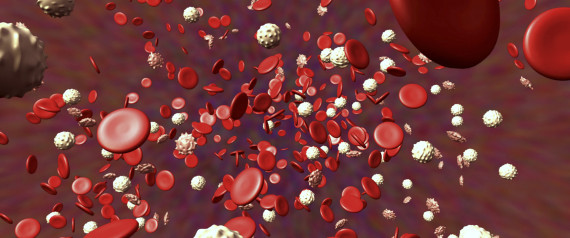A recent study confirms long-held suspicions that the sleep disorder narcolepsy -- a condition where a person feels uncontrollably sleepy during the daytime and can experience muscle weakness -- is actually an autoimmune disorder. The findings also help to explain why narcolepsy was linked to the Pandemrix H1N1 flu vaccine.
Nearly all people with narcolepsy have a specific genetic signature -- called the HLA signature, where HLA stands for human leukocyte antigens -- but not everyone with this genetic signature goes on to develop narcolepsy (20 percent of the general population is thought to possess this signature). A type of immune cell, called the CD4+ T cell, is associated with this HLA signature; immune cells, like this type of T cell, are responsible for recognizing and eradicating foreign invaders in the body.
Previously, researchers had found evidence to suggest that the immune system was responsible for narcolepsy by attacking neurons that produce a neurotransmitter called hypocretin, which promotes wakefulness. (People with narcolepsy are known to have low levels of hypocretin).
In the new study, published in December in the journal Science Translational Medicine, researchers found that only people with narcolepsy have these CD4+ T cells that react to portions of the hypocretin protein, while people without narcolepsy do not have these T cells. WebMD reported that this discovery was based on examinationof 39 people with narcolepsy, and 35 people without the sleep disorder.
However, Nature News also pointed out that the study did not prove that these T cells themselves kill neurons that produce hypocretin -- there could be something else that's going on causing the death of these neurons.
The researchers also found that CD4+ T cells react strongly to a portion of the H1N1 hemagglutinin protein because it strongly resembles that of two portions of hypocretin -- which could help to explain the link between narcolepsy and the H1N1 Pandemrix vaccine, which actually contained parts of viral protein.
Reuters reported that 900 cases of narcolepsy, if not more, were linked with the Pandemrix vaccine, which was administered in the 2009/2010 flu pandemic in Europe but not the United States. (It is no longer being administered in Europe.)
"The relationship between H1N1 infection, vaccination and narcolepsygave us some very interesting insight into possible causes of the condition," study researcher Dr. Emmanuel Mignot, M.D., Ph.D., a professor of psychiatry and behavioral sciences at Stanford University School of Medicine, as well as director of the Stanford Center for Sleep Sciences and Medicine, said in a statement. "In particular, it strongly suggested to us that T cells of the immune system primed to attack H1N1 can occasionally also cross-react with hypocretin and somehow cause the destruction of hypocretin-producing neurons."
The new findings mean that researchers now have a target to set their sights on -- finding ways to stop the loss of brain cells by the body's own immune system.
"By giving us a new way to think about how neurons in these patients die, it alsosuggests new therapeutic approaches that we would not have considered if we hadn’t learned that this is an autoimmune disease," study researcher Dr. Elizabeth Mellins, M.D., an immunology researcher at Stanford, said in the statement.
Read more here

No comments:
Post a Comment